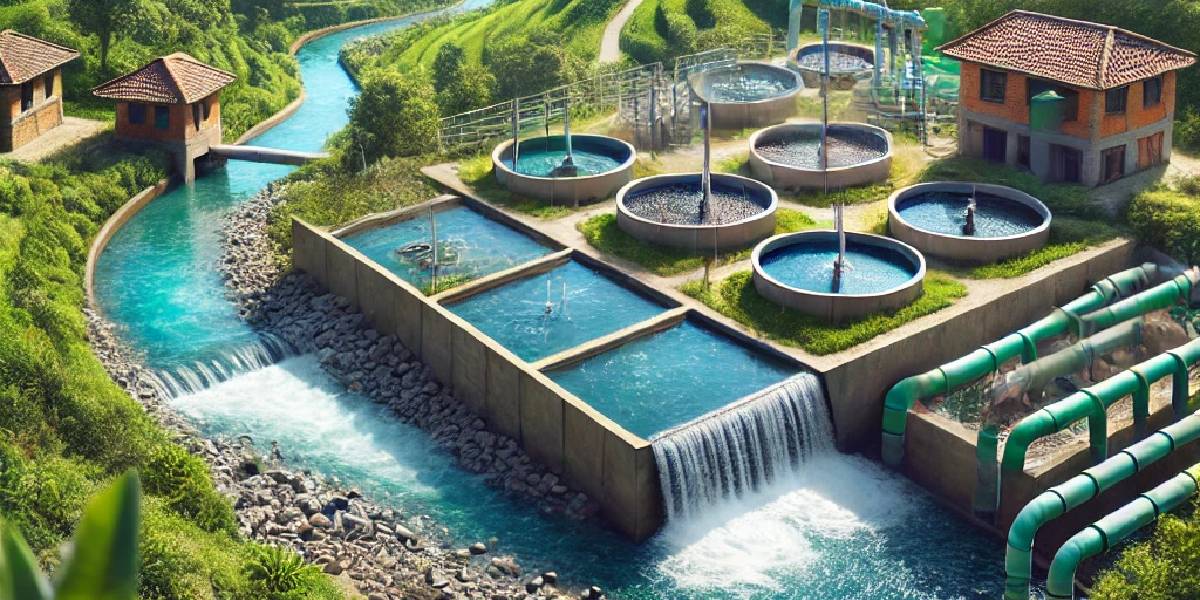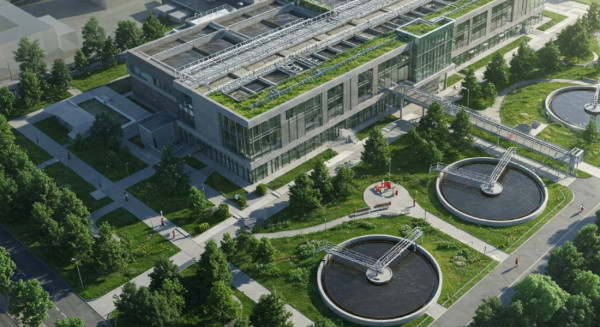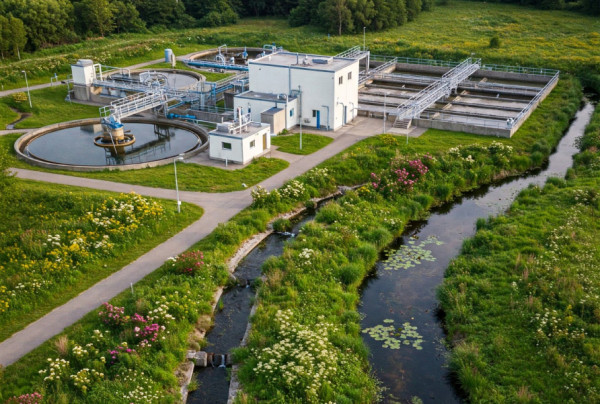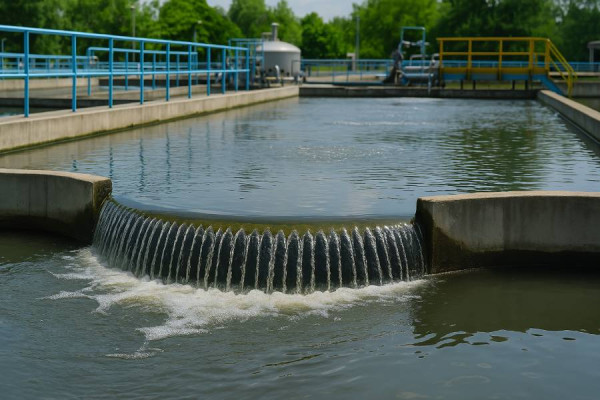News & Blogs
Wastewater Management Project in Nepal

Wastewater Management Project in Nepal: An Engineering Perspective
Wastewater management is one of the critical challenges faced by Nepal as rapid urbanization, population growth, and industrial expansion continue to strain the nation’s infrastructure. While Nepal is celebrated for its natural beauty and cultural heritage, its urban areas grapple with untreated wastewater polluting rivers, soil, and groundwater. Addressing this issue requires comprehensive engineering solutions and sustainable practices.
This article delves into the pressing problem of wastewater management in Nepal, analyzes its impacts, and explores solutions from an engineering perspective.
The Problem: Wastewater Challenges in Nepal
1. Lack of Infrastructure
Nepal’s urban centers, including Kathmandu Valley, are experiencing unprecedented growth. However, wastewater infrastructure development has lagged far behind, resulting in unregulated disposal of domestic and industrial wastewater. According to reports, only a fraction of the wastewater generated in Nepal’s cities is treated before being discharged into the environment.
2. Pollution of Water Bodies
The Bagmati River, a lifeline for Kathmandu Valley, has become a symbol of water pollution due to untreated wastewater. Rivers and streams in urban areas receive substantial quantities of sewage, industrial effluents, and solid waste, leading to severe ecological and public health crises.
3. Public Health Concerns
Contaminated water sources lead to outbreaks of waterborne diseases such as cholera, diarrhea, and dysentery. The World Health Organization (WHO) identifies Nepal as a high-risk region for such diseases, particularly during the monsoon season when runoff exacerbates contamination.
4. Limited Awareness and Policy Implementation
Despite governmental efforts, there is limited public awareness about proper wastewater management practices. Moreover, weak enforcement of policies further compounds the problem, leaving a significant gap between planning and execution.
Engineering Solutions for Wastewater Management in Nepal
1. Decentralized Wastewater Treatment Systems (DEWATS)
Decentralized systems offer a scalable and cost-effective solution for managing wastewater in Nepal’s diverse topography. These systems include:
- Septic Tanks: Common in semi-urban areas, septic tanks provide preliminary treatment of domestic wastewater.
- Constructed Wetlands: Using natural processes involving vegetation, soil, and microbes, constructed wetlands can treat wastewater efficiently in peri-urban areas.
- Anaerobic Baffled Reactors (ABRs): Suitable for Nepal’s terrain, ABRs are compact, require low energy, and efficiently reduce organic loads.
2. Centralized Treatment Plants
For major urban centers like Kathmandu, centralized wastewater treatment plants (WWTPs) are critical. The Guheshwori WWTP is an example, though it operates below capacity due to technical and administrative challenges. Expanding the capacity and enhancing operational efficiency of such plants can mitigate large-scale pollution.
Key design considerations include:
- Primary Treatment: Removal of solid waste and sediments.
- Secondary Treatment: Biological treatment to reduce organic matter and pathogens.
- Tertiary Treatment: Advanced processes like UV disinfection and membrane filtration to produce treated water suitable for reuse.
3. Sewer Network Expansion
Upgrading and expanding sewer networks is vital for collecting and transporting wastewater to treatment facilities. Engineering solutions must consider Nepal’s challenging terrain, requiring innovative techniques like trenchless technology for pipeline installation.
4. Greywater Recycling and Rainwater Harvesting
Greywater (wastewater from sinks, showers, and washing machines) can be recycled for non-potable purposes, reducing the load on treatment plants. Combined with rainwater harvesting, this approach can alleviate water scarcity while minimizing wastewater generation.
5. Integration of Smart Technologies
Adopting smart monitoring systems can optimize wastewater management in Nepal. Technologies such as IoT sensors and SCADA (Supervisory Control and Data Acquisition) systems enable real-time monitoring of wastewater flows, quality, and plant performance, ensuring efficient operations and timely interventions.
Implementation Strategies
1. Stakeholder Collaboration
Successful wastewater management requires collaboration between government agencies, municipalities, private sector players, and local communities. Public-Private Partnerships (PPPs) can mobilize resources and expertise for developing wastewater infrastructure.
2. Capacity Building and Training
Investing in human resources through training programs for engineers, technicians, and policymakers ensures the sustainable operation and maintenance of wastewater systems. Universities and vocational training centers in Nepal must prioritize environmental and wastewater engineering courses.
3. Policy and Regulatory Strengthening
Strong policy frameworks and enforcement mechanisms are necessary to:
- Mandate wastewater treatment for all new developments.
- Penalize industries for non-compliance.
- Incentivize reuse and recycling initiatives.
4. Community Engagement
Raising awareness at the grassroots level about the importance of wastewater treatment and sustainable water practices can drive behavioral change and foster public support for projects.
Case Study: Integrated Wastewater Management in Kathmandu Valley
Kathmandu Valley’s Integrated Urban Development Project (IUDP) serves as a model for comprehensive wastewater management. The project includes:
- Construction of new wastewater treatment plants.
- Rehabilitation of existing sewer networks.
- Promotion of community-based sanitation programs.
- Introduction of stormwater management systems to prevent flooding and combined sewer overflows.
The project demonstrates how strategic planning, engineering innovation, and multi-stakeholder collaboration can address urban wastewater challenges effectively.
Transforming Wastewater Management for a Sustainable Future
Nepal’s wastewater management challenge requires a multi-pronged approach grounded in engineering excellence and sustainable practices. Decentralized systems, advanced treatment technologies, and smart monitoring solutions offer hope for tackling pollution, preserving public health, and protecting the environment.
By investing in wastewater infrastructure and fostering collaboration, Nepal can turn its wastewater challenge into an opportunity for sustainable urban development. It is time to act decisively, combining engineering innovation with community-driven solutions to ensure a cleaner, healthier future for all.



